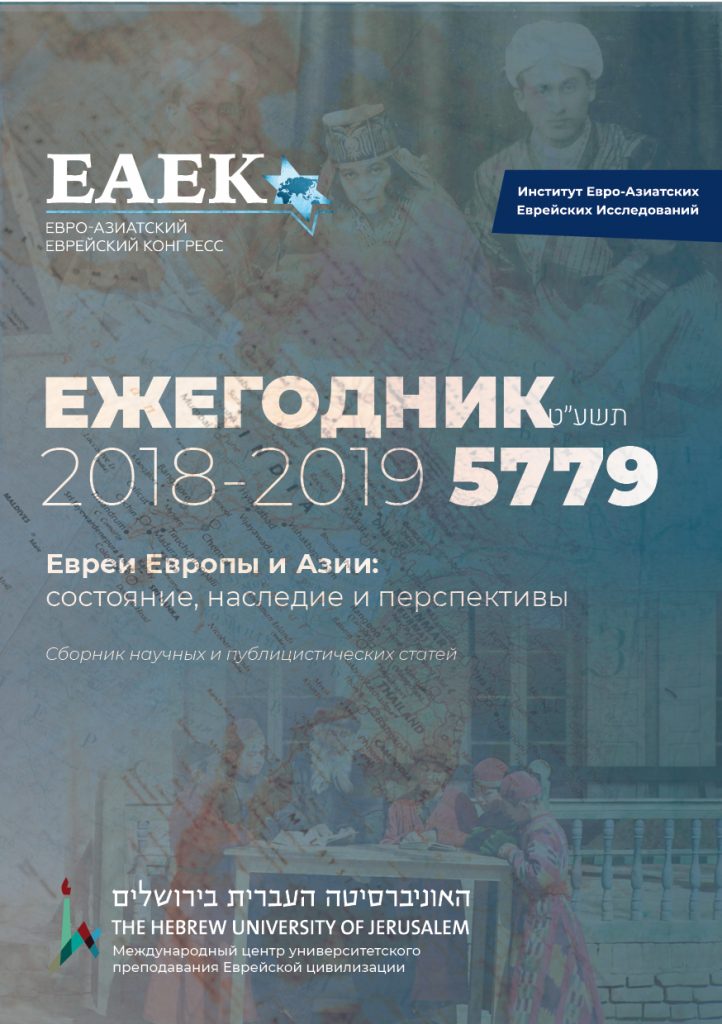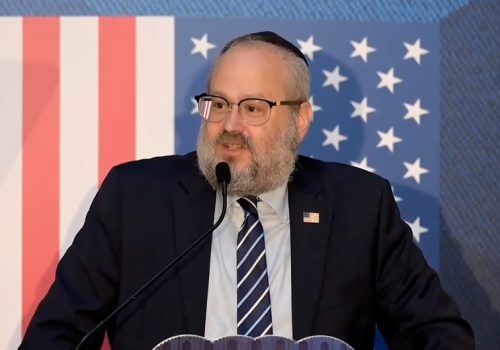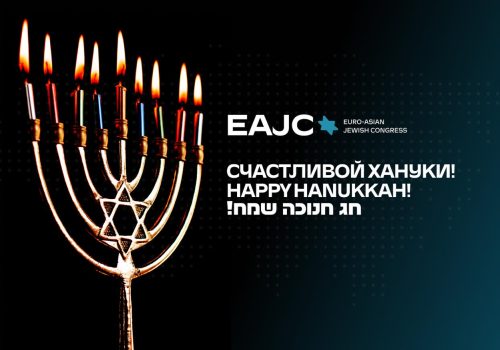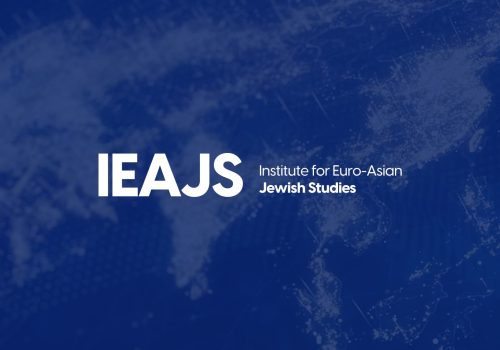
The Euro-Asian Jewish Congress Yearbook “Jews of Europe and Asia: State, Heritage, and Prospects” (Russian: “Евреи Европы и Азии: состояние, наследие и перспективы”) for 5779 (2018-2019) is released by the Institute of Euro-Asian Jewish Studies founded by EAJC, in academic cooperation with the Hebrew University of Jerusalem.
“The Euro-Asian Jewish Congress pays special attention to scientific research analyzing the ever-changing circumstances, characteristics, problems, and tasks on the agenda of the Jewish communities. In this way, we strive to nourish an informed discussion and visionary decisions regarding Jewish life in the Euro-Asian region, ”said EAJC President Dr. Mikhail Mirilashvili.
The EAJC Yearbook opens with an article by EAJC General Director, Dr. Haim Ben Yaakov who analyzes the history and activities of the Congress as a specific organizational phenomenon that arose in the context of the processes generated by the collapse of the socialist bloc, mass Jewish emigration, and the revival of Jewish communities in the post-Soviet space.
The Yearbook contains a conceptual essay by the ethnographer and literary critic Dr. Velvl Chernin on the boundaries of the current Eurasian and FSU Jewry as well as an article by the professor of Ariel University and Chair of Academic Council of the Institute for Euro-Asian Jewish Studies (IEAEI), Zeev (Vladimir) Hanin who analyzes the sociological aspects of the controversy about the size of the “ethnic core” and the “expanded Jewish population” in the countries of the former USSR.
On the pages of the Yearbook, the historian and orientalist Dr. Dmitri Shevelev, using the example of the Jewish community of Moldova, has analyzed the relevance of the idea of Jewish national-cultural autonomy today; Iranian expert Dr. Vladimir Messamed described the modern Iranian Jewish community; and head of the EAJC Strategic Council prof. Mikhail Chlenov highlighted the state and prospects of Jewish ethno-communal groups in India as well as the exotic Jewish community of Indonesia, the most populated Muslim country in the world.
Considerable attention was paid to the state of academic and applied Jewish studies in the post-Soviet space. Dr. Konstantin Bondar devoted an article to the Kharkiv branch of the International Solomon University; associate professor of the Russian State University for the Humanities and Deputy Director of the Museum of Jewish History in Russia, Dr. Maria Kaspina described the experience of Jewish museum work in the post-Soviet space; and from the review by Dr. Artem Fedorchuk you will learn about the Jewish cemeteries study restoration project in Ukraine, Belarus, and Moldova. While the associate professor of the Institute of Asian and African Countries at Moscow State University, Dr. Alexandra Polyan, wrote about a large-scale system for studying and teaching Hebrew.
The Yearbook concludes with a series of articles on the historical aspects of the relationship between Euro-Asian Jews, Israel, and the Zionist movement. Among them are the article by a Jerusalem researcher, Dr. Yair Paz who introduced the phenomenon of the Georgian quarter in Jerusalem, and the article by Dr. Joseph Brener who analyzed the idea of Jewish statehood outside of Israel.
Releasing the Yearbook, the EAJC regularly provides a timely overview of Jewish life in the Euro-Asian region to the Jewish public, the scientific community and the leadership of the states relevant to the EAJC Jewish communities. This important publishing project was initiated by EAEK President Dr. Mikhail Mirilashvili and EAEK Vice President, the President of the Institute for Euro-Asian Jewish Studies (IEAEI), Dr. Mark Shabad.
“On behalf of the EAJC, I would like to express my sincere gratitude to the brilliant academic experts who have made this important Yearbook possible. You’ve made a great work to turn the Yearbook “Jews of Europe and Asia: State, Heritage, and Prospects” into a platform for a free and in-depth scientific discussion on Jewish issues in the Euro-Asian region. We are pleased to invite experts in related fields to collaborate, ”said EAJC General Director, Dr. Haim Ben Yaakov.



